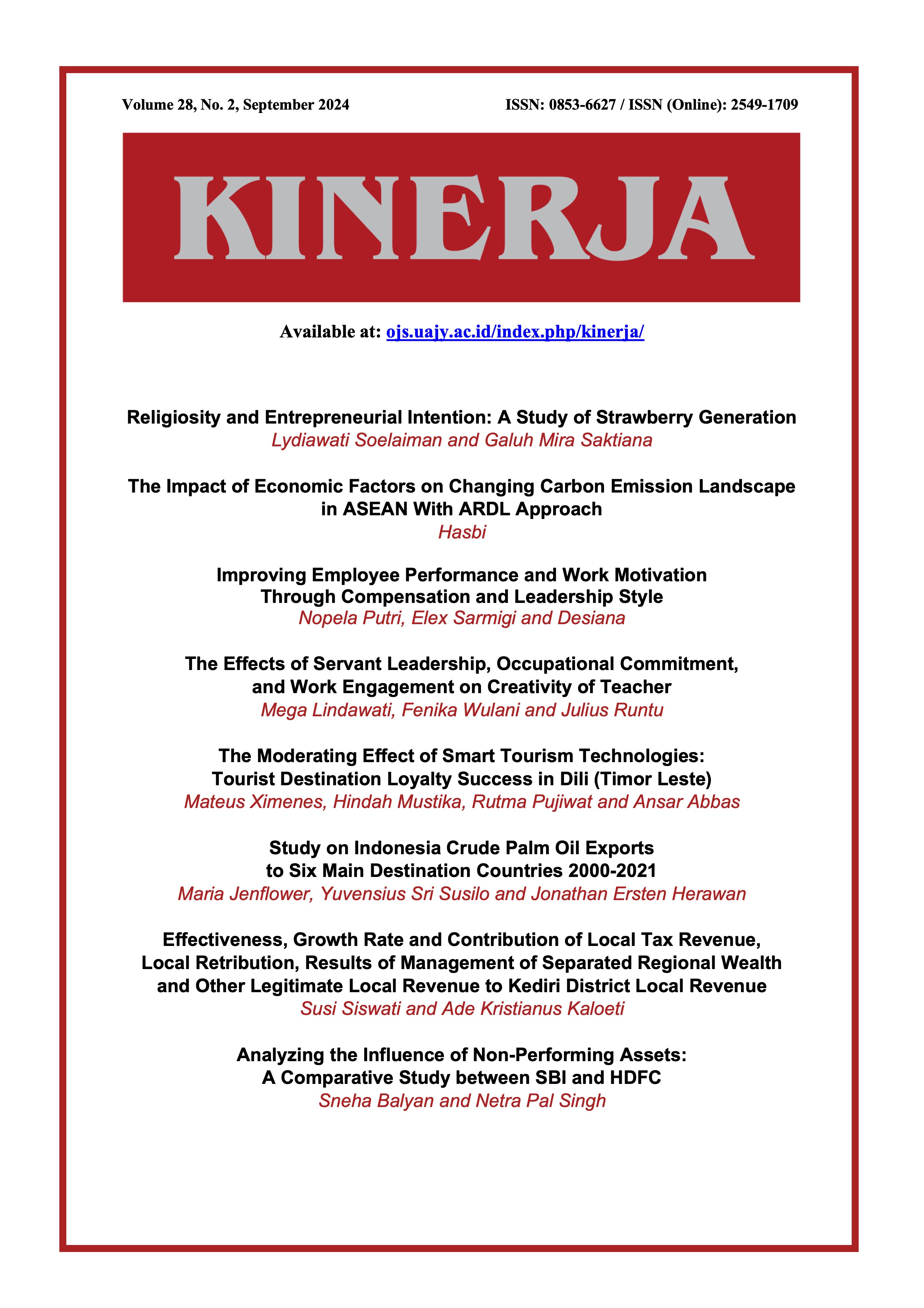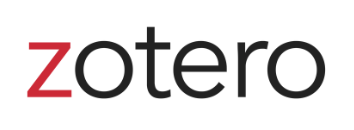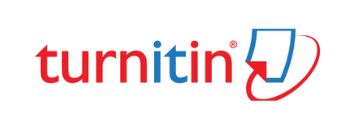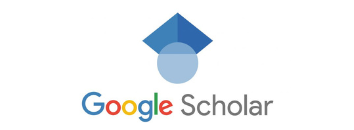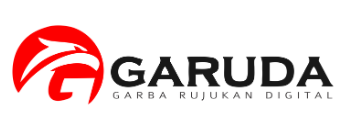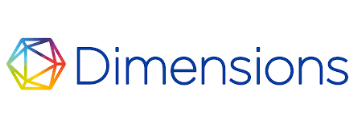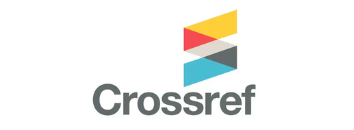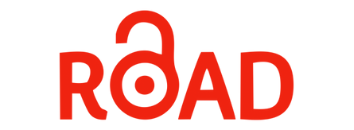The Effects of Servant Leadership, Occupational Commitment, and Work Engagement on Creativity of Teacher
DOI:
https://doi.org/10.24002/kinerja.v28i2.9117Keywords:
servant leadership, creativity, occupational commitment, work engagementAbstract
This study identifies the influence of servant leadership on teacher creativity. We considered occupational commitment and work engagement as sequential mediators in the relationship between servant leadership and teacher creativity. This current study uses surveys by distributing questionnaires to teachers at the "X" education foundation in one of the cities in East Java. Hypothesis testing uses partial least squares-structural equation modeling (PLS-SEM). Our study shows that servant leadership does not directly enhance teacher creativity but rather through occupational commitment and work engagement. This finding contributed to the understanding that servant leadership influences teacher creativity through the sequential mediation of occupational commitment and work engagement. As an implication, the "X" educational foundation needs to choose principals who are able to act as servant leaders. In order to effectively increase teacher creativity, servant leaders must provide support and opportunities for teachers that will boost their commitment to their work. Teachers with high occupational commitment will be more engaged with their work, allowing them to become more creative. In addition, various employee management activities, such as training, recognition, and selecting effective school principals, are needed to increase teachers' commitment, engagement, and creativity.
References
Aboramadan, M., 2021. Servant leadership and followers’ creativity: does climate for creativity matter? Evidence-based HRM, 9(1), pp.78–94.
Aboramadan, M., Dahleez, K. and Hamad, M.H., 2020. Servant leadership and academics outcomes in higher education: the role of job satisfaction. International Journal of Organizational Analysis, 29(3), pp.562–584.
Aboramadan, M., Hamid, Z., Kundi, Y.M. and El Hamalawi, E., 2022. The effect of servant leadership on employees’ extra-role behaviors in NPOs: The role of work engagement. Nonprofit Management and Leadership, 33(1), pp.109–129.
Alblooshi, M., Shamsuzzaman, M. and Haridy, S., 2020. The relationship between leadership styles and organisational innovation : A systematic literature review and narrative synthesis. European Journal of Innovation Management, 24(2), pp.338–370.
Bao, Y., Li, C. and Zhao, H., 2018. Servant leadership and engagement: a dual mediation model. Journal of Managerial Psychology, 33(6), pp.406–417.
Bellamkonda, N., Santhanam, N. and Pattusamy, M., 2021. Goal Clarity, Trust in Management and Intention to Stay: The Mediating Role of Work Engagement. South Asian Journal of Human Resources Management, 8(1), pp.9–28.
Bier, M.C., 2021. Servant leadership for schools. Journal of Character Education, 17(2), pp.27–46.
Bilal, A.R., Fatima, T., Bin Dost, K. and Imran, M.K., 2021. I am engaged, therefore my students are satisfied! Unleashing the role of teachers’ interaction and sensitivity based on self-determination perspective. International Journal of Educational Management, 35(1), pp.341–361.
Blaique, L., Pinnington, A. and Aldabbas, H., 2022. Mentoring and coping self-efficacy as predictors of affective occupational commitment for women in STEM. Personnel Review, 52(3), pp.592–615.
Blau, G., 2003. Testing for a four-dimensional structure of occupational commitment. Journal of Occupational and Organizational Psychology, 76(4), pp.469–488.
Chen, M., Zada, M., Khan, J. and Saba, N.U., 2022. How does servant leadership influences creativity? Enhancing employee creativity via creative process engagement and knowledge sharing. Frontiers in Psychology, 13(July).
Cohen, A., 1992. Antecedents of organizational commitment across occupational groups: A meta‐analysis. Journal of Organizational Behavior, 13(6), pp.539–558.
Gallup, 2023. State of the Global Workplace: 2023 Report. Gallup. Available at: https://www.gallup.com/workplace/349484/state-of-the-global-workplace.aspx?thank-you-report-form=1 [Accessed 24 December 2023].
Gelaidan, H.M., Al-Swidi, A.K. and Al-Hakimi, M.A., 2023. Servant and authentic leadership as drivers of innovative work behaviour: the moderating role of creative self-efficacy. European Journal of Innovation Management.
Greenleaf, R.K., 1973. The Servant as Leader. Michigan: Center for Applied Studies.
Gupta, A., Kumar, J., Tewary, T. and Virk, N.K., 2022. Influence of cartoon characters on generation alpha in purchase decisions. Young Consumers, 23(2), pp.282–303.
Hackett, R.D., Lapierre, L.M. and Hausdorf, P.A., 2001. Understanding the links between work commitment constructs. Journal of Vocational Behavior, 58(3), pp.392–413.
Hair, J.F., Hult, G.T.M., Ringle, C.M. and Sarstedt, M., 2017. A primer on partial least squares structural equation modeling (PLS-SEM). 2nd ed. California: SAGE.
Hanaysha, J.R., Kumar, V.V.A., In’airat, M. and Paramaiah, C., 2022. Direct and indirect effects of servant and ethical leadership styles on employee creativity: mediating role of organizational citizenship behavior. Arab Gulf Journal of Scientific Research, 40(1), pp.79–98.
Hartmans, A., 2023. Meet Gen Zalpha, the powerful combo generation of teens and 20-somethings who are about to have major spending power. [online] Business Insider. Available at: https://www.businessinsider.com/gen-zalpha-explained-internet-natives-major-spending-power-2023-2 [Accessed 23 December 2023].
Huang, W., Zhang, S. and Li, H., 2023. Effects of person-job fit on occupational commitment among kindergarten teachers: occupational well-being as mediator and perceived organizational support as moderator. BMC Psychology, [online] 11(1), pp.1–14.
Hui, L., Qun, W., Nazir, S., Mengyu, Z., Asadullah, M.A. and Khadim, S., 2020. Organizational identification perceptions and millennials’ creativity: testing the mediating role of work engagement and the moderating role of work values. European Journal of Innovation Management, 24(5), pp.1653–1678.
Islam, T., Ahmad, S., Kaleem, A. and Mahmood, K., 2021. Abusive supervision and knowledge sharing: moderating roles of Islamic work ethic and learning goal orientation. Management Decision, 59(2), pp.205–222.
Jahanzeb, S., De Clercq, D. and Fatima, T., 2021. Organizational injustice and knowledge hiding: the roles of organizational dis-identification and benevolence. Management Decision, 59(2), pp.446–462.
Karatayev, D., Matyakubov, U., Mutiliyeva, L., Filimonau, V. and Ermolaev, V.A., 2023. Generation AI and family business: a perspective article. Journal of Family Business Management, pp.1–7.
Karatepe, O.M., Ozturk, A. and Kim, T.T., 2019. The effects of nonwork and personal resources on frontline bank employees’ work engagement and critical job outcomes. International Journal of Bank Marketing, 37(3), pp.858-879.
Khan, A.N., Khan, N.A., Bodla, A.A. and Gul, S., 2020. Impact of psychopathy on employee creativity via work engagement and negative socioemotional behavior in public health sector: Role of abusive supervision. Personnel Review, 49(8), pp.1655–1675.
Khatri, P., Dutta, S., Kumari, P., Duggal, H.K., Thomas, A., Cristillo, I. and Nobis, S., 2023. Modeling intellectual capital-based intrapreneurial ability of working professionals through servant leadership and self-efficacy. Journal of Intellectual Capital, 24(6), pp.1485–1505.
Kim, W., Hantula, D.A. and Di Benedetto, A., 2022. Organizational citizenship behaviors perceived by collectivistic 50-and-older customers and medical-care service performance: an application of stimulus-organism-response theory. Asia Pacific Journal of Marketing and Logistics, 34(10), pp.2237–2268.
Kumar, N., Jin, Y. and Liu, Z., 2024. The nexus between servant leadership and employee’s creative deviance for creativity inside learning and performance goal-oriented organizations. Management Decision, 62(4), pp.1117–1137.
Lee, K., Carswell, J.J. and Allen, N.J., 2000. A meta-analytic review of occupational commitment: Relations with person- and work-related variables. Journal of Applied Psychology, 85(5), pp.799–811.
Lin, B., Mainemelis, C. and Kark, R., 2016. Leaders’ responses to creative deviance: Differential effects on subsequent creative deviance and creative performance. Leadership Quarterly, 27(4), pp.537–556.
Lin, C.., 2017. Exploring career commitment and turnover intention of high-tech personnel: a socio-cognitive perspective. International Journal of Human Resource Management, pp.1–26.
Lin, C.P., Liu, C.M. and Chan, H.T., 2022. Developing job performance: mediation of occupational commitment and achievement striving with competence enhancement as a moderator. Personnel Review, 51(2), pp.750–769.
Lin, W., Ma, J., Zhang, Q., Li, J.C. and Jiang, F., 2018. How is Benevolent Leadership Linked to Employee Creativity? The Mediating Role of Leader–Member Exchange and the Moderating Role of Power Distance Orientation. Journal of Business Ethics, 152(4), pp.1099–1115.
Liu, D., Liao, H. and Loi, R., 2012. The dark side of leadership: A three-level investigation of the cascading effect of abusive supervision on employee creativity. Academy of Management Journal, 55(5), pp.1187–1212.
Liu, K. and Ge, Y., 2020. How psychological safety influences employee creativity in China: Work engagement as a mediator. Social Behavior and Personality, 48(8), pp.1–7.
Medase, S.K. and Savin, I., 2023. Creativity, innovation and employment growth in sub-Saharan Africa. African Journal of Economic and Management Studies, ahead-of-p(ahead-of-print).
Nguyen, T.P.L., Nguyen, T.T., Duong, C.D. and Doan, X.H., 2022. The effects of transformational leadership on employee creativity in Vietnam telecommunications enterprises. Management Decision, 60(3), pp.837–857.
Parhamnia, F., Farahian, M. and Rajabi, Y., 2022. Knowledge sharing and self-efficacy in an EFL context: the mediating effect of creativity. Global Knowledge, Memory and Communication, 71(4–5), pp.293–321..
Pattnaik, S.C. and Sahoo, R., 2020. Employee engagement, creativity and task performance: role of perceived workplace autonomy. South Asian Journal of Business Studies, 10(2), pp.227–241.
Pérez-Luño, A., Aguilar-Caro, R. and Muñoz-Doyague, M.F., 2024. The influence of personality and team-member exchange on creativity: a gendered approach. Gender in Management, 39(1), pp.145–164.
Pradana, R.M., Murtadlo and Widodo, B.S., 2023. Strategi sekolah dalam peningkatan peserta didik baru (Studi kasus SMA Labschool Unesa 1). Dharmas Education Journal (DE_Journal), 4(1), pp.81–89.
Qamar, F., Soomro, S. and Syed, O.R., 2023. Determining factors to foster educators’ pedagogical resilience: test of servant leadership and social cognitive theories in post-pandemic era. Journal of Economic and Administrative Sciences, ahead-of-p(ahead-of-print).
Rubenstein, L.D.V., Ridgley, L.M., Callan, G.L., Karami, S. and Ehlinger, J., 2018. How teachers perceive factors that influence creativity development: Applying a Social Cognitive Theory perspective. Teaching and Teacher Education, 70, pp.100–110.
Sahoo, P.K., Pany, S., Mohanty, S.P., Dash, K.R. and Rana, S., 2023. Dialogue embedded synectics model of teaching: a hybrid model for promotion of creativity. Journal of Research in Innovative Teaching and Learning, ahead-of-p(ahead-of-print).
Saptono, A., Nurhayati, F. and Suparno, S., 2021. Does Teachers ’ Creativity Promote Economic Learning Outcomes ? The Role of Student Creativity Quotient. Jurnal Pendidikan Bisnis dan Manajemen, 7(2), pp.80–92.
Sawhney, G., Britt, T.W., Sinclair, R.R., Mohr, C.D. and Wilson, C.A., 2020. Is Commitment to One’s Profession Always a Good Thing? Exploring the Moderating Role of Occupational Commitment in the Association Between Work Events and Occupational Health. Journal of Career Assessment, 28(4), pp.551–570.
Schaufeli, W.B., Bakker, A.B. and Salanova, M., 2006. The measurement of work engagement with a short questionnaire: A cross-national study. Educational and Psychological Measurement, 66(4), pp.701–716.
Schroeder, B., 2016. The effectiveness of servant leadership in schools from a Christian perspective. BU Journal of Graduate Studies in Education, 8(2), pp.13–18.
Shaleh, A., . S., Sarita, B. and Mahrani, S.W., 2024. The Influence of Servant Leadership and Ethical Leadership on Employee Creativity is Mediated by Organizational Learning. International Journal of Religion, 5(11), pp.4230–4248.
Siyal, S., Saeed, M., Pahi, M.H., Solangi, R. and Xin, C., 2021. They can’t treat you well under abusive supervision: Investigating the impact of job satisfaction and extrinsic motivation on healthcare employees. Rationality and Society, 33(4), pp.401–423.
Sokoll, S., 2014. Servant leadership and employee commitment to a supervisor. International Journal of Leadership Studies, 8(2), pp.88–104.
Stoten, D.W., 2013. Servant leadership in English sixth form colleges: What do teachers tell us? International Journal of Educational Management, 27(4), pp.377–386.
Tang, G., Yu, B., Cooke, F.L. and Chen, Y., 2017. High-performance work system and employee creativity: The roles of perceived organisational support and devolved management. Personnel Review, 46(7), pp.1318–1334.
Tang, J., Tosun, C. and Baum, T., 2020. Do Gen Zs feel happy about their first job? A cultural values perspective from the hospitality and tourism industry. International Journal of Contemporary Hospitality Management, 13(12), pp.4017–4040.
Ting, H., Fam, K.S., Jun Hwa, J.C., Richard, J.E. and Xing, N., 2019. Ethnic food consumption intention at the touring destination: The national and regional perspectives using multi-group analysis. Tourism Management, 71(November 2018), pp.518–529.
Wood, R. and Bandura, A., 1989. Social Cognitive Theory of Organizational Management. Academy of Management Review, 14(3), pp.361–384.
Yang, J., Liu, H. and Gu, J., 2017. A multi-level study of servant leadership on creativity: The roles of self-efficacy and power distance. Leadership and Organization Development Journal, 38(5), pp.610–629.
Yang, J., Ma, C., Gu, J. and Liu, H., 2020. Linking servant leadership to employee creativity: The roles of team identification and collectivism. Chinese Management Studies, 25(3), pp.215–233.
Zhang, S., Huang, W. and Li, H., 2023. Perceived organizational support and occupational commitment: A study among male kindergarten teachers. Heliyon, 9(9), p.e20369.
Ziatdinov, R. and Cilliers, J., 2021. Generation Alpha: Understanding the Next Cohort of University Students. European Journal of Contemporary Education, 10(3), pp.783–789.
Downloads
Published
Issue
Section
License
Copyright (c) 2024 Mega Lindawati, Fenika Wulani, Julius Runtu

This work is licensed under a Creative Commons Attribution 4.0 International License.

